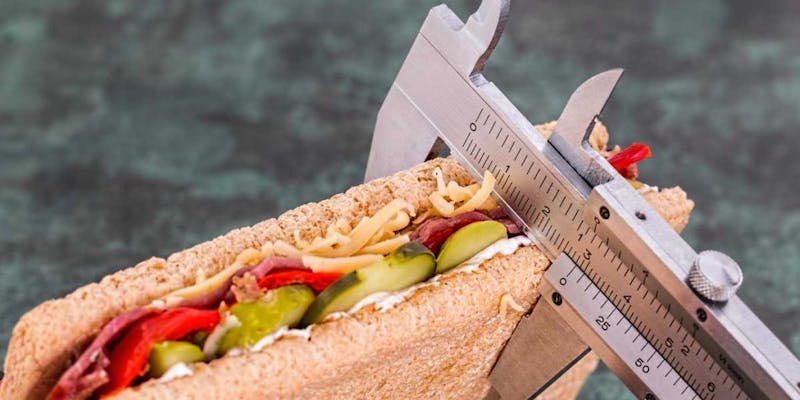
Farewell to counting calories!
Right after surgery, most patients can have between 400 to 1,000 calories. At 3 months, it usually is between 800 to 1,000 calories. At one year, calorie intake is somewhere between 1,000 and 1,600. Daily calorie intake depends on restriction from the weight loss procedure, gender, age, fat-free mass, and physical and medical condition. But, after surgery, the emphasis is in the quality of food since the quantity -calories- is being controlled by the restriction from the surgery. Quality, not quantity, can restore health! Excess of weight is just a symptom of an underlying cause and only thru nutrition, the culprit may be reversed.
Food portions are initially remarkably limited and weight loss is easily achieved in the period immediately after surgery. For these reasons, some patients may choose or prefer excessive amounts of calorie dense foods and justify these choices due to the fact that the scale is still going down. As the pouch reaches its final size by nine months after surgery and eating starts feeling more comfortable, food intake capacity increases. A previous experience of eating calorie dense foods can reinforce these choices and cause suboptimal weight loss, early plateaus and weight regain!
There is no comparison between the calories found in potato chips compared to those found in fruit, nuts, and seeds. The first will biologically stress out your cells and organ function and the latter will fuel cellular metabolism improving energy and optimizing organ performance. The first will give you limited energy from a sugar rush and will increase cravings during the day; the latter will provide lasting energy, a clear state of mind, regulate appetite, control hunger, improve gut function, promote detoxification processes and in general, facilitate health. Same number of calories, vastly different results on hunger hormones and cellular performance! -including fat burning. Because a calorie is not a calorie (Fed up, 2014). Different foods have different effects on the hormones and brain centers that control hunger and eating behavior and a huge impact on physiological processes.
Should you eat back exercise calories?
It depends on the type, frequency, duration, and intensity of exercise and overall hunger and energy levels. Walking 10,000 steps and exercising 150 minutes per week should not be compensated with additional calorie intake. Not while losing weight or at any other time. Additional workouts should include a bit more of protein and carbohydrates within 30 minutes from exercising with the purpose of muscle repair and growth and to improve performance for future exercise sessions. Although it is important to consider that it is very common to overestimate calorie burn from either physical activity or exercise and underestimate calorie consumption. If hunger and cravings increase AND energy levels go down, chances are that you need a bit more calories. In general, you should not go out of your way to compensate calories from a normal workout; rather, you need to be mindful about your body’s cues to hunger and if whether you feel burnt out from exercising or not. Keep in mind that over exercising leads to pseudo hypothyroidism, leading to a temporary decrease in metabolic rate. Athletes should be inidually evaluated.
Bariatric surgery is a tool to make long lasting changes and to establish a healthier lifestyle. Thus, it is important to emphasize making healthy choices since the early stages and being mindful and respectful of body clues.If there is no tracking on calorie intake, how can you plan your meals? I’ll answer this on my blog: Meal planning without calorie counting.
Share with

